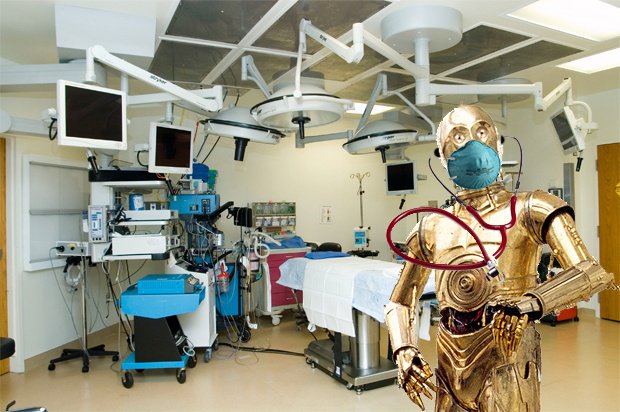Will your next nurse be a robot?
Mar 22, 2017

It’s looking like the next step in automation is robotic kiosks. They are taking over airport check-in, fast-food ordering, and now the initial nurse interaction at hospitals.
Nurse WellPoint is going to take your vitals
BeWell Innovations, a Belgian medtech company specializing in tele-monitoring and patient self-testing, has introduced the first robotic nurse.
Their product is called WellPoint, a touchscreen-enabled booth that operates as a first port-of-call for visitors that quickly checks their basic vitals before they see a medical professional.
According to BeWell, initial contact with a human nurse takes an average of seven minutes, along with a few minutes to update the medical record.
WellPoint can do it all in 3 minutes and simultaneously update the EHR.
Are nurses becoming obsolete?
No way. While WellPoint ensures the recording of vitals without manual data entry, it can’t do much else yet. BeWell has big plans for expanding WellPoint’s use to bridge the gap between machine and nurse, with their next focus being connecting blood sugar monitors to the machine for diabetes testing.
Currently, its only other skill is helping patients fill out those tedious medical history questionnaires that have become synonymous with a visit to the hospital. These capabilities come in at just $8,800 per year, so you can see why WellPoint is a serious consideration among hospitals.
But there’s still one distinct characteristic that robots lack—humanity
Nurses are more than just machines that take your vitals—they’re educated and intuitive clinical providers.
Nurses identify when a patient’s condition is deteriorating, take initial steps to stabilize the patient, and make the call on when to escalate to a physician for additional help when a treatment plan isn’t working.
They notice who is and isn’t sleeping well, when appetites increase or diminish, and when a patient is confused and needs education or explanation about their treatment.
If medications are effective or causing adverse reactions, or if a patient appears flushed or uncomfortable even when their vitals look normal, a nurse notices.
All of these factors are incredibly important in making sure a patient is on a treatment course that will allow them to go home and stay well.
The support technology can give nurses in healthcare is exactly what BeWell is offering—allowing nurses to spend more time providing direct patient care while also ensuring that needed documentation is completed quickly and accurately. The human touch in healthcare is essential in holistic medicine by ensuring that a patient is being treated as a human, and not just as a body.
Nurses and other clinicians, tell us in the comments where technology can help you provide better care for your patients!
